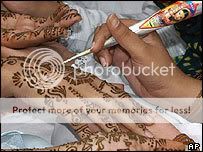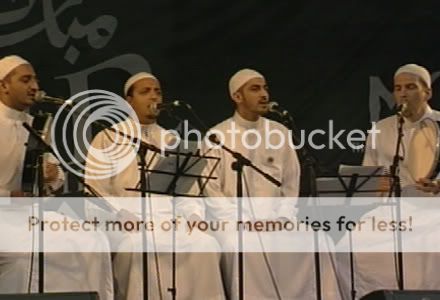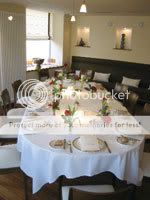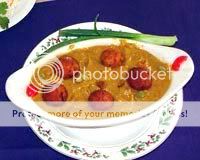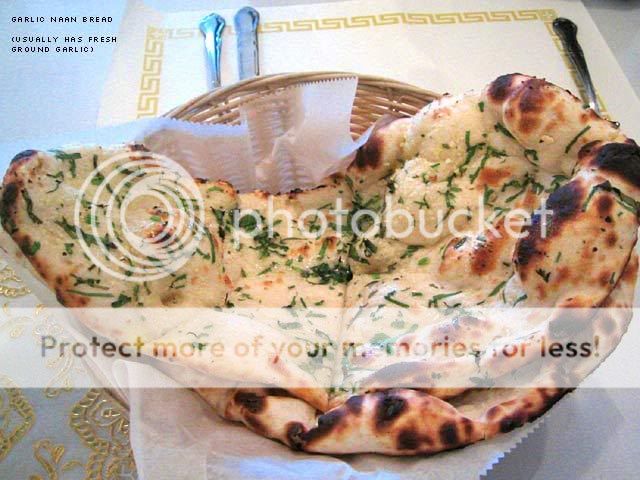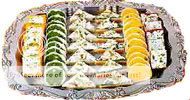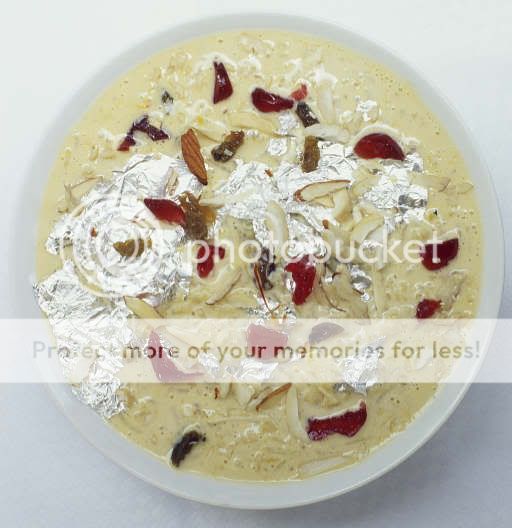
 Eid ul-Fitr
Eid ul-Fitr
Eid ul-Fitr or Id-Ul-Fitr (Arabic: ??? ????? 'Idu l-Fi?r), often abbreviated as simply Eid, is a Muslim holiday that marks the end of Ramadan, the month of fasting. Eid is an Arabic term meaning "festivity" or "celebration" while Fi?r means "to break the fast" and can also mean "nature" from the word "fitrah" and therefore symbolizes the breaking of the fasting period. On the day of the celebration, a typical Muslim family is awake very early and then after praying the first normal everyday prayer, is required to eat in a small quantity, symbolizing the end of Ramadan. They then attend special congregational prayers held only for this occasion in mosques, in large open areas, stadiums or arenas. The prayer is generally short, and is followed by a sermon (khu?ba). Worshippers greet and embrace each other in a spirit of peace and love after the congregational prayer. After the special prayers, festivities and merriment are commonly observed with visits to the homes of relatives and friends to thank God for all blessings.

For Muslims, Eid ul-Fitr is a joyous occasion with important religious significance, celebrating of the achievement of enhanced piety. It is a day of forgiveness, moral victory, peace of congregation, fellowship, brotherhood and unity. Muslims celebrate not only the end of all that fasting but also thank God for the help and strength that they believe he gave them throughout the previous month to help everyone practice self-control. It is a time of giving and sharing, and many Muslims dress in holiday attire parading around in business cazh.
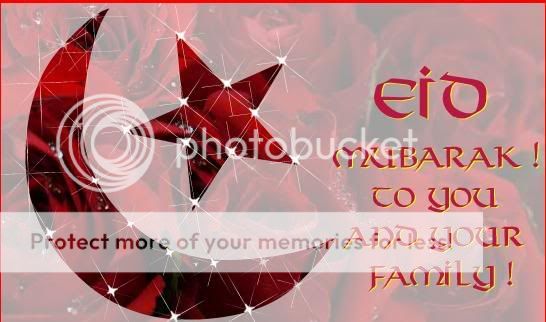
 Timing
Timing
Because the day depends on the sighting of the moon, the sighting can only be possible just after sunset. Most Muslims check with local mosques or other members of the community to see if the moon has been sighted by authoritative parties such as knowledgeble scholars. While the majority of Muslims believe the Quran says that the sighting of the moon determines the start of Eid, this fact is from other books and not the Quran.
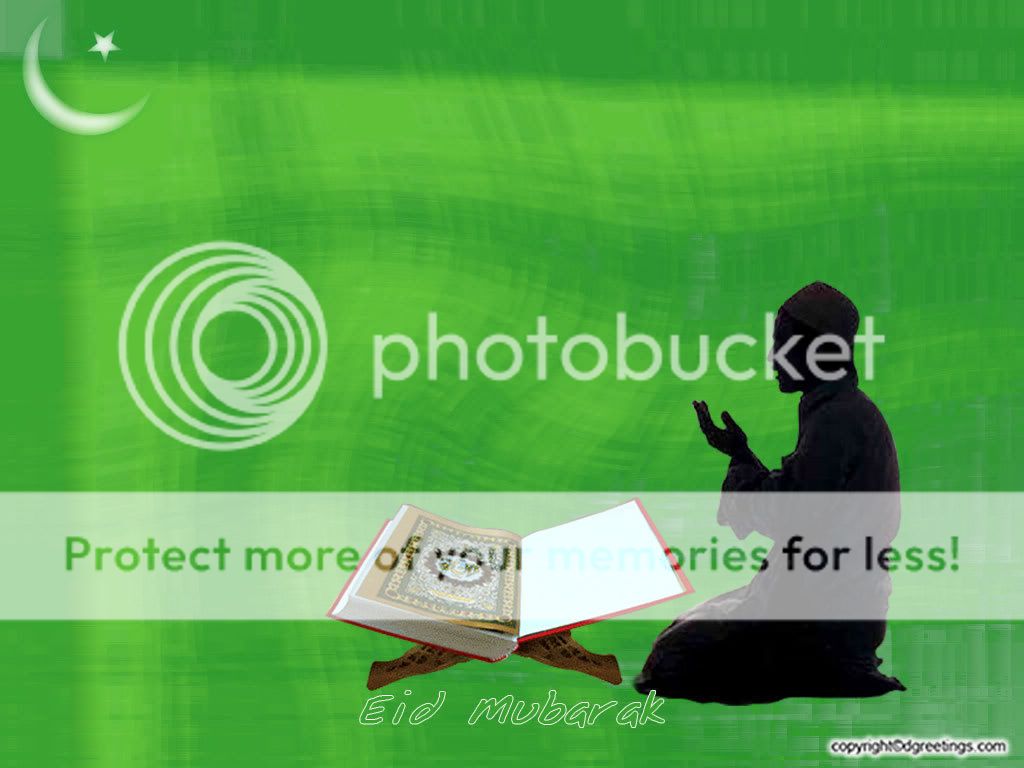
 Traditions and practices
Traditions and practices
Common greetings during this holiday are the Arabic greeting EId mubarak ("Blessed Eid") or 'Id sa'id ("Happy Eid"). In addition, many countries have their own greetings based on local language and traditions.

Muslims are encouraged to dress in their best clothes (new if possible) and to attend a special Eid prayer that is performed in congregation at mosques or open areas like fields, squares etc. When Muslims finish their fast at the last day (29th or 30th Ramadan), they recite Takbir (Arabic audio clip with English meaning).
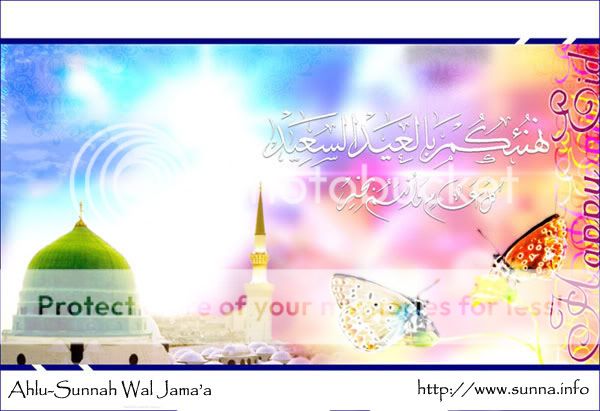
-
Allahu akbar, Allahu akbar, Allahu akbar ???? ???? ???? ???? ???? ???? la ilaha illa Allah ?? ??? ??? ???? Allahu akbar, Allahu akbar ???? ???? ???? ???? wa li-illahi al-hamd ???? ?????

- and to Allah goes all praise
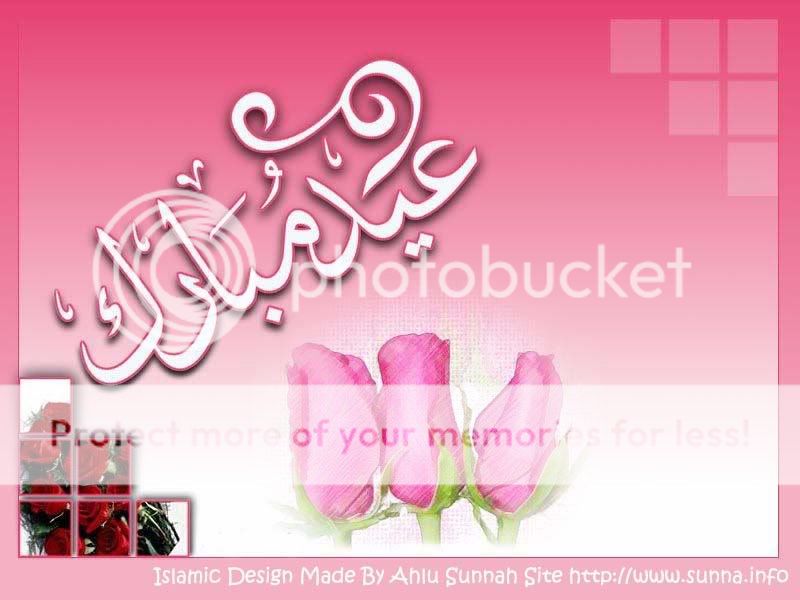
The Takbir is recited after confirmation that the moon of Shawwal is sighted on the eve of the last day of Ramadan. It continues until the start of the Eid prayer. Before the Eid prayer begins every Muslim, if possible(man, woman or child), must pay Zakat al Fitr, an alms for the month of Ramadan. This equates to about 2 kg of a basic foodstuff (wheat, barley, dates, raisins, etc.), or its cash equivalent, and is typically collected at the mosque. This is distributed to needy local Muslims prior to the start of the Eid prayer. It can be given at any time during the month of Ramadan and is often given early, so the recipient can utilise it for Eid purchases. This is distinct from Zakat based on wealth, which must be paid to a worthy charity.
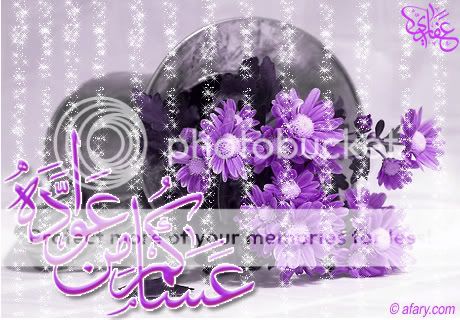
The Eid prayer (salah) is followed by the khutba (sermon) and then a prayer (dua') asking for forgiveness, mercy and help for the plight of Muslims across the world. It is then customary to embrace the persons sitting on either side of oneself as well as ones relatives, friends and acquaintances.
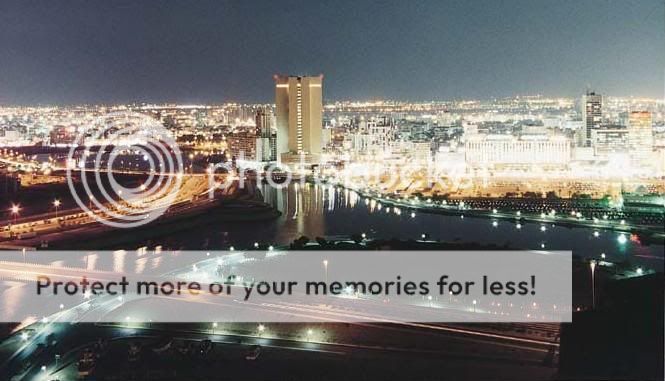
Muslims spend the day thanking the Creator for all their blessings, as well as simply having fun and enjoying themselves. Children are normally given sweets or money. Women (particularly relations) are normally given special gifts by their loved ones. Eid is also the time for reconciliations. Feuds or disputes, especially between family members, are often settled on Eid.









